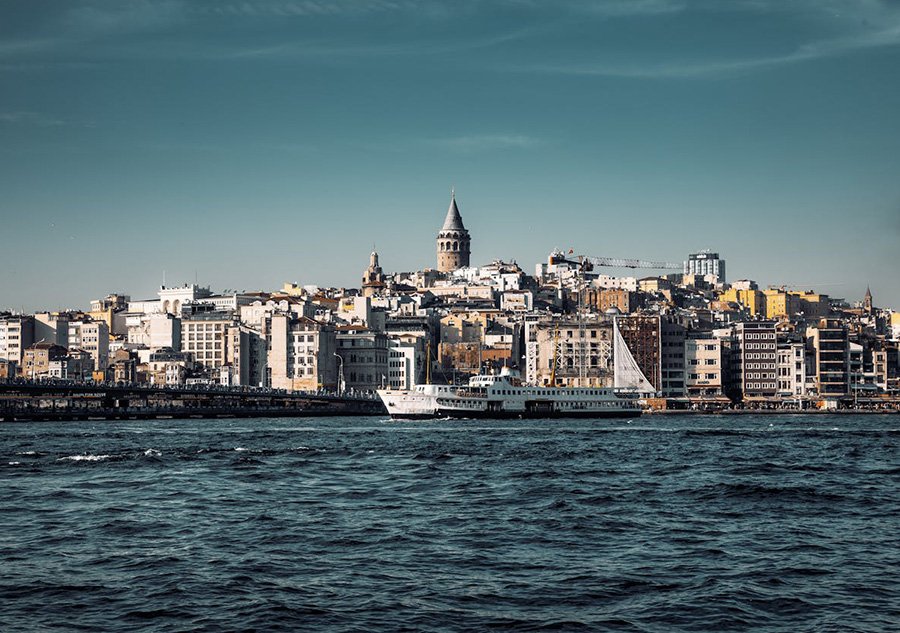Turkey's Home Sales: Domestic Demand for Real Estate Rising, Foreign Demand Falling

Home prices and sales are rising in Turkey, driven by domestic demand, mortgage growth, and new projects. However, high inflation is virtually eliminating real price increases, and foreign buyer interest in real estate remains low, signaling ongoing risks for the housing sector. This is despite programs offering Turkish residency or citizenship through real estate investment.
According to the Turkish Statistical Institute, residential property sales rose 12.4% year-on-year in July to 42,858 units. The highest sales were in Istanbul (23,152), Ankara (12,491), and Izmir (7,815). The lowest figures were recorded in Ardahan (58), Bayburt (93), and Hakkari (103). Over the first seven months, transactions increased by 24.2% to 834,751.
Mortgage Market Expansion
In July, 18,425 properties were sold via mortgages—up 60.3% from last year—accounting for 12.9% of all sales. Over the first seven months, mortgage-backed transactions surged 93.2% to 121,515. The majority (87.1%) of sales were cash purchases. In July, cash transactions rose 7.6% to 124,433, and in January–July they totaled 713,236.
New Builds vs. Secondary Market
New-build sales rose to 43,984 units in July (+7.8% y/y) and 251,608 (+17.5% y/y) in January–July, making up 30.8% of the market. Secondary market transactions grew faster—14.6% y/y in July to 98,874, and 27.3% in January–July to 583,143.
Foreign Buyer Trends
Foreign buyers purchased 1,913 homes in July—a drop of 18.6% y/y—accounting for just 1.3% of all sales. Istanbul (643), Antalya (642), and Mersin (175) led in popularity. Russians remained the most active (315 transactions), followed by Iranians (152) and Germans (135). Ukrainians, Iraqis, Azerbaijanis, and Kazakhs also remained in the market. From January to July, foreign sales fell 12.1% to 11,267 transactions.
This trend has persisted for some time, though June showed a brief reversal with an 8.7% y/y rise in foreign purchases to 1,565 units—driven by Russians (326), Ukrainians (111), and Iranians (109). Antalya led in locations (603 sales), followed by Istanbul (521) and Mersin (128).
Price Dynamics and Inflation Impact
According to Endeksa, property prices in May rose 2% m/m and 26% y/y in nominal terms, but declined 1% and 8% respectively when adjusted for inflation. The average price per square meter reached ₺32,693 ($841), with an average apartment costing ₺4.2 million ($108,000). The estimated payback period for real estate investment is 13 years.
Regional differences are stark. Diyarbakir saw a 61% nominal rise (18% real), Çanakkale +46% (7% real), and Manisa +43% (4% real). Hatay posted a 17% nominal gain but a 14% real decline. In Muğla, changes ranged from +20% to -12%, while in Eskişehir they varied from +23% to -10%.
Among Turkey’s four largest cities, Ankara led with +34% nominal growth (−2% real), followed by Izmir (+28% to −6%), Istanbul (+24% to −9%), and Antalya (+21% to −12%). Rents rose 34% y/y and 4% m/m in nominal terms, but fell 2% y/y when adjusted for inflation. The average rent was ₺212/m² ($6) or ₺22,041/month ($568).
Outlook
Investropa forecasts nominal housing prices will rise another 15–25% due to strong domestic demand, expanding mortgage lending, and large-scale infrastructure projects. However, high inflation means real price growth will remain minimal, and purchasing power will continue to decline. By 2030, Turkey’s total housing stock value could grow from $110 billion to $187 billion, though political and economic risks could alter this scenario.
Mordor Intelligence projects a 6–7% annual price growth in 2026, with the secondary market leading gains. Primary market trends will depend on mortgage affordability. A central bank rate cut could briefly boost new-build demand, but inflation spikes and weak lira confidence may quickly offset this effect.








